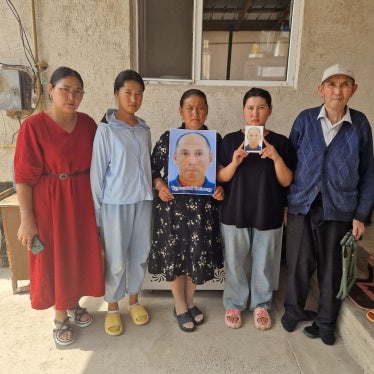The popular uprisings sweeping the Arab world have all contained calls for greater rights and freedoms. Jordan is no exception.
Upon designating Marouf Bakhit as the new prime minister, on February 1, King Abdullah called for greater and more pluralistic political space for all Jordanians.
Jordan's Council of Ministers and Parliament urgently need to follow up, making it a priority to guarantee protection of the rights to freedom of assembly, expression and association. These rights are essential safeguards for a fair and inclusive political contest. Without them there is little chance of a genuine political opening, however much the legislature tinkers with electoral and political party laws.
To their credit the new ministers have started well when it comes to freedom of assembly. The interior minister proposed, and the Council of Ministers adopted, a proposal to amend the Public Gatherings Law, replacing the requirement to obtain prior permission for a gathering with a simple requirement for advance notification. Now the Parliament needs to approve the measure.
This amendment would allow Jordanians for the first time to organise and meet as they wish. The restriction of prior consent has hampered civil society. For example, ahead of elections in 2007, a coalition of local organisations could not meet in a rented hotel room to coordinate independent monitoring because the governor refused permission. Each news conference or workshop required a trip to the local governor.
In the past, governors permitted demonstrations only as a safety valve: to let off anger during former US president George W. Bush's visit to Amman in 2006, during Israel's military offensive on Gaza in January 2009, and as regime-changing mass demonstrations got under way in Tunisia and Egypt early this year. Stacked up against that meagre count are hundreds of requests to hold public marches, chiefly by the Islamic Action Front, that governors turned down.
As for protecting freedom of expression, the new government has done nothing so far, seemingly satisfied with having eliminated criminal sanctions from the Press and Publications Law in 2007. But that is not enough. Prosecutors routinely rely on provisions of the Penal Code to prosecute government critics or to settle personal scores.
The case of Tahir Nassar makes clear the importance of changing the laws to protect free speech. Nassar, an independent candidate in the November 2010 parliamentary elections, was detained by the prosecutor at the military-dominated State Security Court because his election manifesto had called for equality among citizens, understood as a code for promoting Jordanians of Palestinian origin. Nassar faced charges of lese majeste and "causing sectarian strife", under articles 195 and 150 of the Penal Code.
The Bakhit government has been equally silent on reforming the stifling law regulating civil society organisations, the NGO law. A new law regulating non-governmental organisations was passed in 2008, and amended in 2009, but they maintain state control over civil society organisations. The government can still deny groups registration, which allows them to operate. It can deny them permission to seek foreign funding and can even shut them down or take them over, as happened to two of the largest Jordanian organisations under Bakhit's first premiership, from 2005 to 2007.
In mid-December, a large-scale effort to require groups to reregister required organisations to submit reams of documents with minute information about their goals, plans, and in order to be approved.
A new law should replace this political power with simple notifications by the founders of an organisation that it exists, keep the government out of civil society's business, and transfer to judicial officers any powers to investigate alleged wrongdoing by these groups.
The government should propose amendments to safeguard fundamental rights such as freedom of expression and association and not treat electoral reform as the only priority. If the Jordanian government fails to take these steps, it risks being submerged by the democratic wave that is surging through the region.
The writer is senior researcher for Jordan at Human Rights Watch. He contributed this article to The Jordan Times.






